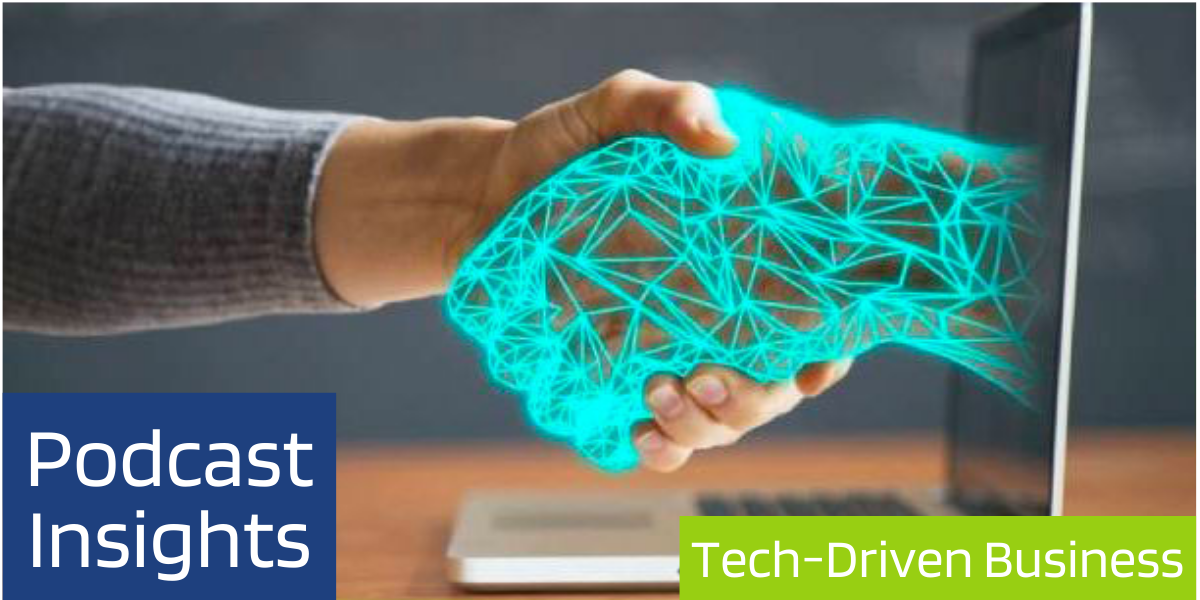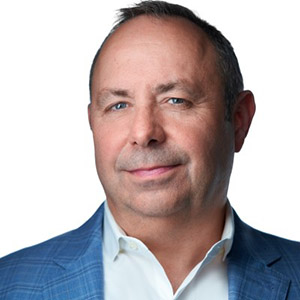By Mariyah Saifuddin
 Geoff Scott, CEO and chief community champion for Americas’ SAP User Group (ASUG), brings decades of business and technology experience to any conversation. “I really think about business outcomes first and technology second,” said Scott.
Geoff Scott, CEO and chief community champion for Americas’ SAP User Group (ASUG), brings decades of business and technology experience to any conversation. “I really think about business outcomes first and technology second,” said Scott.
In his recent guest appearance on the “Tech-Driven Business” podcast, Scott not only explained his background, but also took a deep dive into how businesses can succeed in their digital transformation efforts. As Scott shared with host Mustansir Saifuddin, “The worst day of AI is today.”
Here were some of Scott’s key takeaways in the podcast, which you can view below.
The power of GenAI
AI has been a part of the SAP ecosystem for quite sometime. However, ChatGPT brought the generative AI conversation into the mainstream. “What was back office technology that was used to achieve business the outcomes all of a sudden became available to the masses,” Scott said. “And it became available to the masses in a very simple way.”
It now begs the question: Will GenAI bridge the gap between the C-suite and technology teams by making technology more understandable and accessible to business leaders? According to Scott, GenAI is going to be a departure from some of the top-of-mind issues in the SAP ecosystem.
It is vital that enterprise data is “lined up correctly” to form GenAI models and make them work, Scott said. Referencing conferences and news articles, Scott shared how he is “wrapping his head” around what is referred to as “synthetic data” in this fast-changing world of AI. Lots is happening.
The underlying importance is what enterprises do with the wealth of historical data.
How accurate is the data?
How relevant is the data?
Without these two pieces, enterprises risk having models being trained on inaccurate or irrelevant data while still expecting great results.
Another part of this equation, according to Scott, is the “gray data,” or data that’s in our heads, which is what we use to make decisions about things that the AI models have zero knowledge. AI does not capture gray data and as such, leaders must think about how much of their enterprises run on gray data versus bits and bytes. Otherwise they risk working on a model that is not going to be very effective.
The path of digital transformation
While some organizations are ahead of the pack when it comes to innovation, and others are waiting to see what happens, many are in the middle. Scott said that for enterprises to be successful with innovation and fast adoption of technology they require three things:
- Be in the cloud
- Invest in Software as a Service (SaaS)
- Minimize customization
Scott recognizes that for many SAP customers this is a tectonic shift in perspective. Among longtime SAP customers, many have customized for various reasons. For example, their business process may not have lined up with SAP’s and thus customization took place. Scott refers to this idea of “technical debt.” Regardless of how teams find themselves there, Scott said, “I don’t think any of us as SAP practitioners wake up in the morning and say, today is the day I’m going to build a lot of technical debt.” It is not necessarily something that technologists strive for.
However, now with the stakes being so high, we all must be careful about customization. This is where problems can arise for finding the balance between business needs and IT change control methodologies.
This balance will take time to achieve and will not be an overnight process. Furthermore, in order to leverage good data sets and predictive analytics to be more efficient, less customization is beneficial. Otherwise teams will be concentrating their efforts on customization and not predictive analytics.
The future for SAP customers
As enterprises seek to be leaner, faster and more efficient, AI plays an even bigger role for them, Scott said, adding that he is excited about the potential of AI to:
- Help migrate systems faster
- Understand quality in data
- To “lift and shift” business processes out of legacy systems into new systems
- To drive business test cases and quality assurance
Scott believes that we are at a massive inflection point with the upgrade of these systems. “We have to move to the next generation of SAP software, he said. “I believe that unlocks the gateway to everything we’re talking about today.” It cannot be a long-term project over multiple years.
ASUG: A community of learning, connection and growth
As SAP professionals approach innovation and AI, there is growing importance to being an active part of ASUG, Scott said. With more than 300 volunteers working together annually, ASUG provides a unique platform for professionals to learn, connect, and grow.
Scott encourages SAP professionals to engage with their local ASUG chapters, as well as to attend ASUG’s national events, such as the ASUG annual conference, SAP Sapphire and the newly rebranded ASUG Tech Connect. These events provide platforms for SAP users to exchange knowledge, explore new technologies, and prepare for the future.
Other ways ASUG supports members include:
- First Five newsletter: Every Monday this newsletter provides a recap of the top five articles that happened in the SAP ecosystem over the past week.
- ASUG podcasts: A series addressing a number of various SAP and ASUG issues.
- Campus Connect: This program focuses on getting the next generation of talent excited about the careers in the SAP ecosystem.
Embracing change and innovation
Wth a shared enthusiasm for the future of digital transformation, Scott and Saifuddin agree that the key to success lies in continuous learning, embracing new technologies and fostering a collaborative community. By leveraging AI and other digital tools, businesses can drive efficiency, innovation and growth, staying competitive in an evolving landscape.
For SAP professionals looking to stay at the forefront of their field, engaging with ASUG and participating in its events and initiatives is invaluable, said Scott and Saifuddin. The journey of digital transformation is complex, but with the right community and resources, it becomes a shared and achievable goal.
Interested in more Tech-Driven Business podcasts? You can listen here
About the podcast guest: Geoff Scott

Geoff Scott is CEO and chief community champion for Americas’ SAP User Group (ASUG). Scott believes that the connections ASUG makes for its members have the potential to become career-defining relationships that inspire innovation and success for their organizations.
His leadership prioritizes helping ASUG members make the most of their investment in SAP technologies. To that end, Scott works closely with customers, members, the SAP executive board and the extensive partner ecosystem to amplify the voice of the SAP customer.
Scott’s past positions include CIO for TOMS shoes, where he led the implementation of SAP; CIO at JBS; and senior leadership roles at Ford Motor Co. Scott also has served on several philanthropic boards and is the founding member of the Denver CIO Executive Council.
Before becoming CEO, Geoff was an ASUG member and served on the board.
About ASUG
ASUG is the world’s largest SAP user group, serving thousands of businesses and connecting more than 130,000 professionals with networking and educational resources. Its mission is to help people and organizations get the most value from their investment in SAP technology.
The group holds in-person and virtual events and makes on-demand digital resources available to its members.
Annual ASUG meeting: Chapter members from throughout North America met in Chicago for the annual volunteers meeting.

